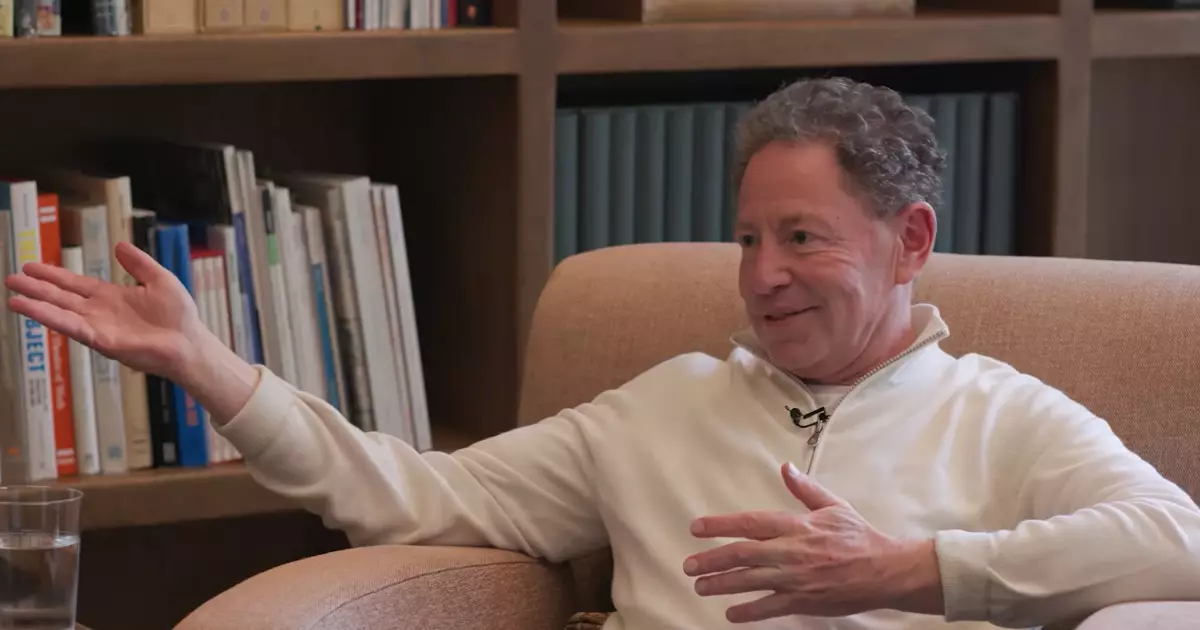The gaming industry has experienced profound changes over the last few years, particularly with the emergence of workplace rights and unionization efforts. Recently, former Activision Blizzard CEO Bobby Kotick’s remarks on the Grit podcast have reignited discussions surrounding the company’s tumultuous legal landscape. Kotick, during an interview with Bing Gordon of Kleiner Perkins, referenced “fake lawsuits” concerning allegations of workplace misconduct and claimed that the Communication Workers of America (CWA) had targeted Activision Blizzard to bolster union membership. In response, the CWA fiercely rejected his statements, urging that such claims are not only misleading but also disrespectful to those who have suffered under alleged negative workplace conditions.
Kotick’s assertions were met with swift condemnation, particularly from organizations representing Activision Blizzard employees. The CWA quickly responded, emphasizing that Kotick’s claims lacked any substantive backing. In fact, the reality starkly contrasts with his narrative. The company had previously settled a lawsuit with the U.S. Equal Employment Opportunity Commission (EEOC) in 2021 for $18 million after allegations of workplace sexual harassment and discriminatory practices came to light. This settlement included provisions for mandatory anti-harassment training, enhanced mental health resources, and support for victims—actions that stand as a testimony to the seriousness of the allegations, contrary to Kotick’s characterization of them as mere fabrications.
Moreover, in 2023, Activision Blizzard faced a $54 million settlement with the California Civil Rights Department (CRD) for similar issues concerning gender discrimination and unequal pay among its workforce. While some might argue that these settlements were merely financial expedients, they illustrate a broader acknowledgment of substantial workplace issues rather than reflecting the “false” narrative that Kotick sought to convey.
Responses to Kotick’s claims were not limited to the CWA. The ABK Workers Alliance, a coalition of Activision Blizzard employees advocating for workplace equality, took to social media to reject any assertion that their circumstances are a ruse concocted in a bid to drive unionization. The group categorically stated, “The trauma, discrimination, and abuse that our coworkers and former coworkers endured is not fake or a ‘plan to drive union membership.’” This impassioned statement reiterates the lived experiences of many employees in the face of Kotick’s reductive narrative.
The unionization efforts within the company illustrate a significant shift in employee sentiment. Workers in various divisions of Activision Blizzard have come together not merely to address grievances, but to champion a culture that reflects the company’s purported values. The assertion by the ABK Workers Alliance that they are not a “third party” seeking to impose external agendas, but rather representatives of the workforce itself, highlights a growing desire for self-advocacy among employees.
Kotick’s comments also raise broader questions about leadership in the corporate environment and the responsibilities that come with it. The juxtaposition of his tenure at Activision Blizzard, characterized by a series of troubling allegations, against his recent attempts to downplay those very issues invites scrutiny into how leaders handle crises. Rather than taking accountability for the culture fostered under his leadership, Kotick’s rhetoric seems to shift blame towards external forces, which is ultimately detrimental to tumultuous workplace environments.
In the world of video games, where creativity thrives alongside rigorous demands for performance and innovation, a supportive work culture is paramount. The dismissal of serious allegations as “fake” undermines not only the credibility of those who speak out but also hinders progress toward reforming workplace standards.
The Future of Activision Blizzard: A Shift Toward Accountability
Moving forward, the statements made by Kotick and the responses they elicited lay bare a fundamental truth: the rights and dignity of workers cannot be disregarded. As Activision Blizzard navigates this complex landscape, the need for genuine accountability and structural change within leadership dynamics has never been more pressing.
The ongoing unionization efforts, alongside external scrutiny from organizations like the CWA, signal a shift toward improved workplace culture that prioritizes employee well-being. Kotick, no longer a part of the company’s leadership, can serve as a case study in what happens when accountability is absent from corporate governance. The voices of workers, combined with continued advocacy for rights and representation, indicate that the era of ignoring grievances is swiftly coming to an end.
Ultimately, the health of a company’s culture relies on transparent communication, accountability, and genuine outreach to its workforce—elements that can facilitate a truly inclusive environment for all employees. In this era of awakening, it is not the “fake lawsuits” that define a company, but the real stories and struggles of its employees that will chart its future.

